Respect your past/path
Also: "Puntkick" - Whoops, gotta upgrade myself now
Dad said something in a recent conversation that struck me deeply.
Earlier this week, there occurred a four-way conversation on one’s life-path between my parents, my older sister, and myself.
My sister is finishing her final semester at college, and the big question (besides having to adjust to life with seven siblings again) for her seems to be what sort of a work-life she should step into. She already has a remote job, but the question is how many hours to put into it — is it worth making a career out of and doing it full-time, or should she keep it part-time and do other stuff on the side?
At one point, Dad suggested she choose one of two paths — the one he walked for nearly two decades working full-time in IT, or mine with its multiple-income-streams approach.
That moment was the first time I could remember my dad actually validating my path. He’d asked me to find one thing and stick to it for some years, saying I would pretty much get nowhere in life if all I do is dabble and then “give up” once I stopped liking something.
So here he was, pointing to this sort of life as a legitimate approach to one’s income-incurring work (or at least as legitimate as a full-time job). It hit me that I’d done something I didn’t realize I was doing the past few years — I walked a path without external (and sometimes not even internal) validation so much that, while his comment meant something to me (he’s Chinese after all, besides being one of two adults closely involved in my life), it was only in the sense of “oh, you finally get it.”
Granted, his comment was more of a sidenote in the conversation, but it sparked a chain of thinks that ties in quite well with a previous post on growth. These thoughts could be summed up in three words:
Respect your past.
Respect the path that has led you to where you are now — including all flaws and failings and fears.

This path has shaped in you both the things you love and hate about yourself. Some parts of it no one else knows but yourself; some parts might have been embarrassingly public and painfully obvious to others; yet others have only remained as dreams and imaginations inside your head. The path hasn’t been perfect, but it was yours to walk, and so you did.
This includes the knee injury you earned going down a skiing hill faster than your skills could guide you through well, which slows down your physical training and adds knee sprains and aches (not to mention wariness in the way you move) to your life for the next few years. And that one instance of driving into a unmaintained road for no good reason and having to be towed out by a friendly, helpful tractor. And completing a university degree at eighteen only to feel lost and unmotivated for a solid year afterwards due to the letdown after being “such an overachiever.”
(I wrote all that in second person, but your story is probably different — insert your own anecdotes. :)
It doesn’t only mean accepting responsibility and owership of those stories, though — respecting that past also means taking stock of and dealing with your own garbage. Craig Mod says it well here:
It’s easy. Easy to embrace that modicum of responsibility for your own waste. This is my protest song, the world’s lamest: I will attend to my garbage without complaint. Maybe give it a try next time you’re in Japan? It’s very exciting — to realize you will not be killed by your garbage…
Ah, that last line, I love it so much — your past, your garbage, your darkness doesn’t have to kill you.
Remember those cartoon caterpillars walking along a stick? How do they move forward? They go up and down, up and down, squeezing and contorting their bodies into an inverted U then into a straight line, then up again, just to take one step. So much work! I’m not sure of other caterpillars find that sexy or if the moving caterpillar feels embarrassed about moving like this but hey, it works.
And maybe that’s all we could ask of our own paths — that it works, if just towards something only we care about, even if it doesn’t make sense to anyone or even ourselves until afterwards (and sometimes not even then).
And that’s another thing too, isn’t it — frustrating that such growth is often only visible in hindsight. Growth is visible only after the fact — must look back to see how far you’ve travelled, not just look at the small step you’re taking.
The tricky part of all this, for a multi-level overthinker such as I, is the great potential for present reframings and future retellings of the past, which made lead to harmful or even delusional perceptions of my journey. Sort of like an over-exaggerated version of how we tend to only remember significant past events as either positive or very negative (even if it’s quite rare for any to be so thoroughly one way or the other!).
…I’d end here before I end up rambling about growth for another thousand (unnecessary) words.
Until next time.
Odelia
Quote for the week
“It’s not about what and how much you have, but what and how much has you.” — Erwin McManus
"It’s not what you gather, but what you scatter that tells what kind of life you have lived." — Helen Walton
“This is the most dangerous trap in life: To allow the real house in front of us to fall down while we obsess over a castle in the air. Your real house are the things you have, the things your younger self prayed for, the things your present self complains about. There's nothing wrong with building that castle in the air, but there is something wrong with allowing your real house to fall down while you do.” — Sahil Bloom
This week’s word: “Puntkick”
From The Dictionary of Obscure Sorrows by John Koenig.
punt kick
n. a quiet jolt of recognition that it’s time to become a better version of yourself, sensing that all the strategies that brought you this far are no longer working—that it’s not enough anymore to be cute or nice or righteous or tough—as if you’ve now entered a new phase in the game of life, moving forward with a completely different token.
Dutch puntstuk, railway frog, which is the part of a railway switch where two rails intersect. Sometimes you can feel a little kick when your train passes over it, as if the world is trying to signal you’re missing a turn, having traveled too far on the same old track.
*** The same solutions I've learned Don't carry the same weight I'd expected from them. What do I do with Problems I couldn't define, Emotions I can't parse, Relationships without contracts, And days where time is both Too slow and too fast, all at once? ***
Snapshots of life
A lovely Canadian winter day:
A little think for you to mull over
Something extra just for this week, because:
My brain overflowed with thoughts this week
I couldn’t continue creating as I’d like to with so much mental build-up
I think this thought is worth reminding ourselves of every now and then
So, I’m here again.
The think:
Reversing your thinking about the thing you’re doing might actually make you do the thing better.
Nothing ground-breaking — just that it’s easier to do pushups if you think of pulling the ground towards you and then your arms springing back. Or when you’re attempting a quick scale or run on the violin, that you should think primarily of raising your fingers on time instead of focusing on placing them down (as my brothers’ music teacher says).
For me, this idea translates powerfully to singing. Many people sing with the mindset that air goes up through their throat, vibrates the vocal chords, and then exits the mouth. Within this understanding, they are the ones creating the sound — more air and force means a louder sound, and vice versa.
Here’s me attempting to demonstrate this “sending the sound out” approach:1
And then there are some who speak of drinking in your voice.
That is, singing as if the sounds don’t originate within you — they are in the air around you. You are but a vessel that invites them within your “instrument” and gives them power and expression.2
My attempt at this (this sounds softer than the above only because I held the recording device further away ;) :3
Drinking in the voice, at least to me, is far more powerful, sustainable, and enjoyable than the usual singing approach.
Is it difficult? Sort of. The energy behind this “technique” scares me sometimes — people around me already say my singing is loud and resonant, but I know I’m nowhere near my full potential, I’ve barely started serious breathwork! — but it gives me a basis from which to wonder if I could use this reversed mindset on things to make life a little easier and more enjoyable for myself and those around me.
I recently told someone I’m trying to “live a hard life the easy way.” (Not that my life is hard, necessarily. But you get the point.) It’s primarily the mindset that makes something seem a certain way to you.
Of course, this doesn’t apply to just anything we’d like it to. Sometimes it makes better sense to use different techniques for different things — you don’t have to start reversing your thinking on every little thing right now. But also, just maybe, it might be worth experimenting with approaching the same thing in a totally different light, just to see how that works out for you.
After all, thinking about “drinking in your voice” doesn’t change the fact that air is pushed through your throat to create sounds as you sing.
Yet something does change when you think differently about it — I find it a LOT easier (and the feeling far more natural) to sing with good posture and mouth/cheekbones position when drinking in the voice compared to other styles. (Throwing this out there just in case some of you like to sing too!)
Just for fun, I recorded two more singing styles I sometimes play around with.
With nasal resonance: 4
With a “breathy voice”: 5
…Not sure why I’d throw this bit into an already full newsletter, but hope it sparks something in you anyhow!
Give this a peek
This guy is such a cool high school teacher (pictures below from his IG page):
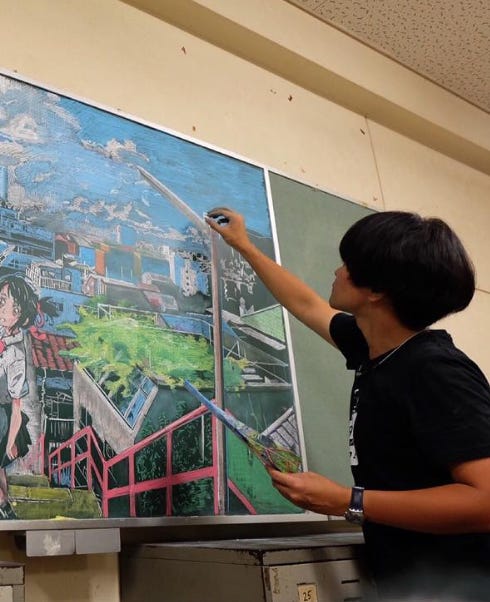
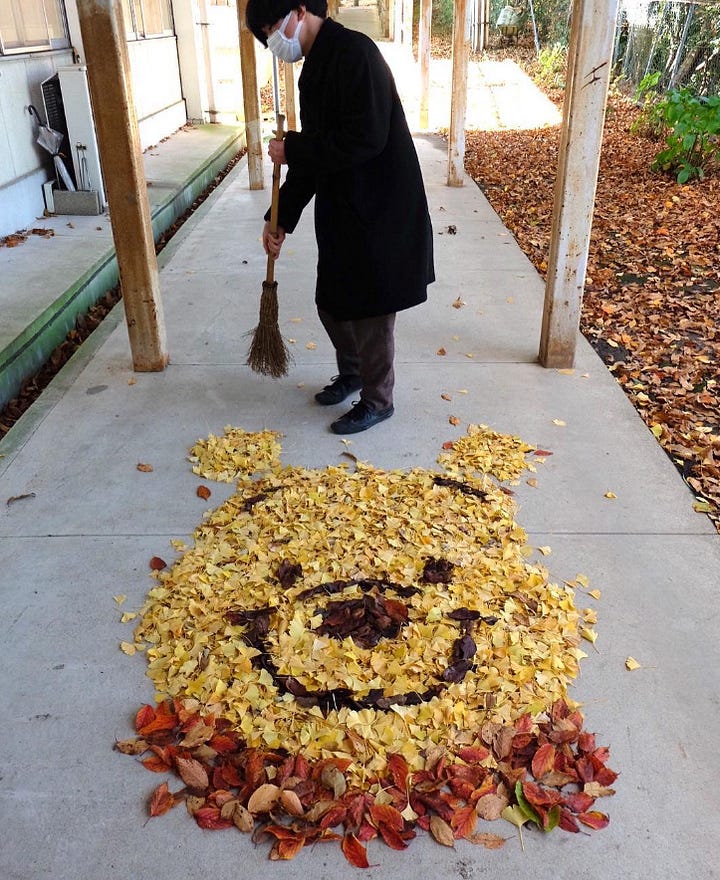
Note: Those two anime films (Your Name and The Garden of Words) are very much worth your time. I like the former slightly more than the latter, but both are beautiful and touching, quite memorable masterpieces. Ah! And the soundtracks! So wonderfully composed.
Bullet notes from my desk
Read this piece from The Autodidacts earlier this week. Now trying to use this approach to work out some thought patterns and mental frameworks that are becoming troublesome, one of which is…
…my current balance between self-development + training + investments and contribution/service. This post from Elle Griffin is a timely wake-up call from me, and drives home some thoughts my mom keeps reminding me of as I turn circles around what to study, what not to study, what gigs to add to my plate or drop from my schedule, etc. (I appreciate you, Mom!) I don’t think I’d necessarily agree with the conclusion Elle reached here, but perhaps that’s more because of the stage of life I’m in — being in your twenties usually means having less of worth to offer than in your thirties or forties.
One of my younger sisters picked up a Chinese brush calligraphy sample from an older Chinese gentleman who was selling traditional snacks and treats on the train she was on. Here’s a picture of said sample — I’d like to learn from him, but my sketchy Mandarin might be a barrier. But there’s so much richness in these few characters; it appears he’s taken the “Grass Script” and given his own twist on it here.
All to say, I like this a lot, and appreciate my sister’s thoughtfulness so much! Doesn’t it just warm your heart when someone remembers that a certain little something matters to you, then takes the trouble to make sure you get to see and enjoy it when you otherwise might not have?
“Nevermind” - Ben Barnes. (Also: For this and the other three short audio clips, please forgive the quality of both the voice and the sound. The recordings were spontaneous, so I didn’t do any proper setup or vocal warmups. They come to you without autotune and with a bit of wind.")
Maria Callas, one of my favourite opera singers of all time, once described the experience this way: “The voice makes love to the body.” The more I understand and use this approach, the more I understand what she meant for myself. It’s actually quite marvellous.
“The Impossible Dream” - from Man of La Mancha
“Like a Stone” - Chris Cornell
“Die for Someone” - Sam Thompkins. This style of singing is so breathy I kept running out of air, haha!

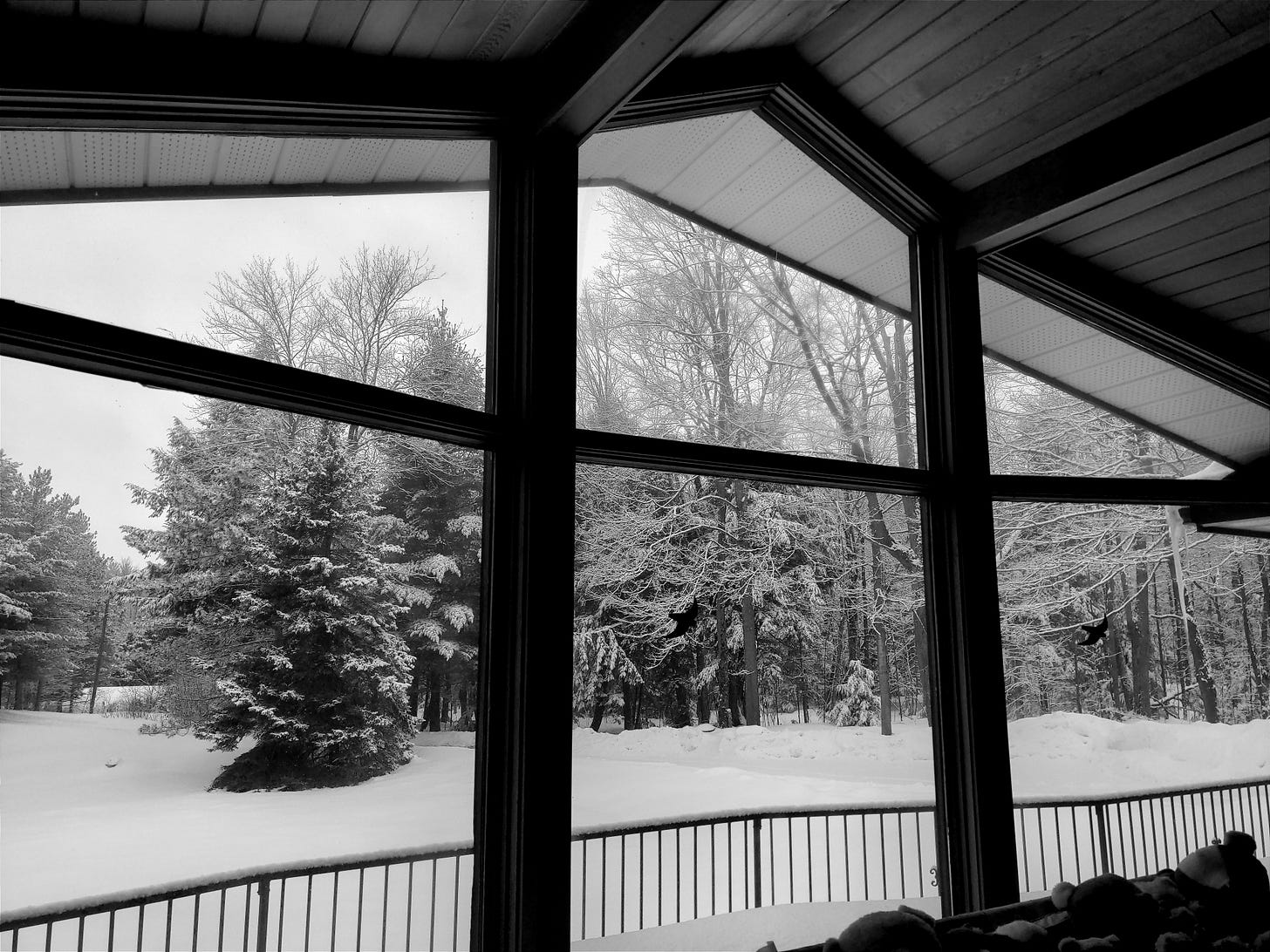
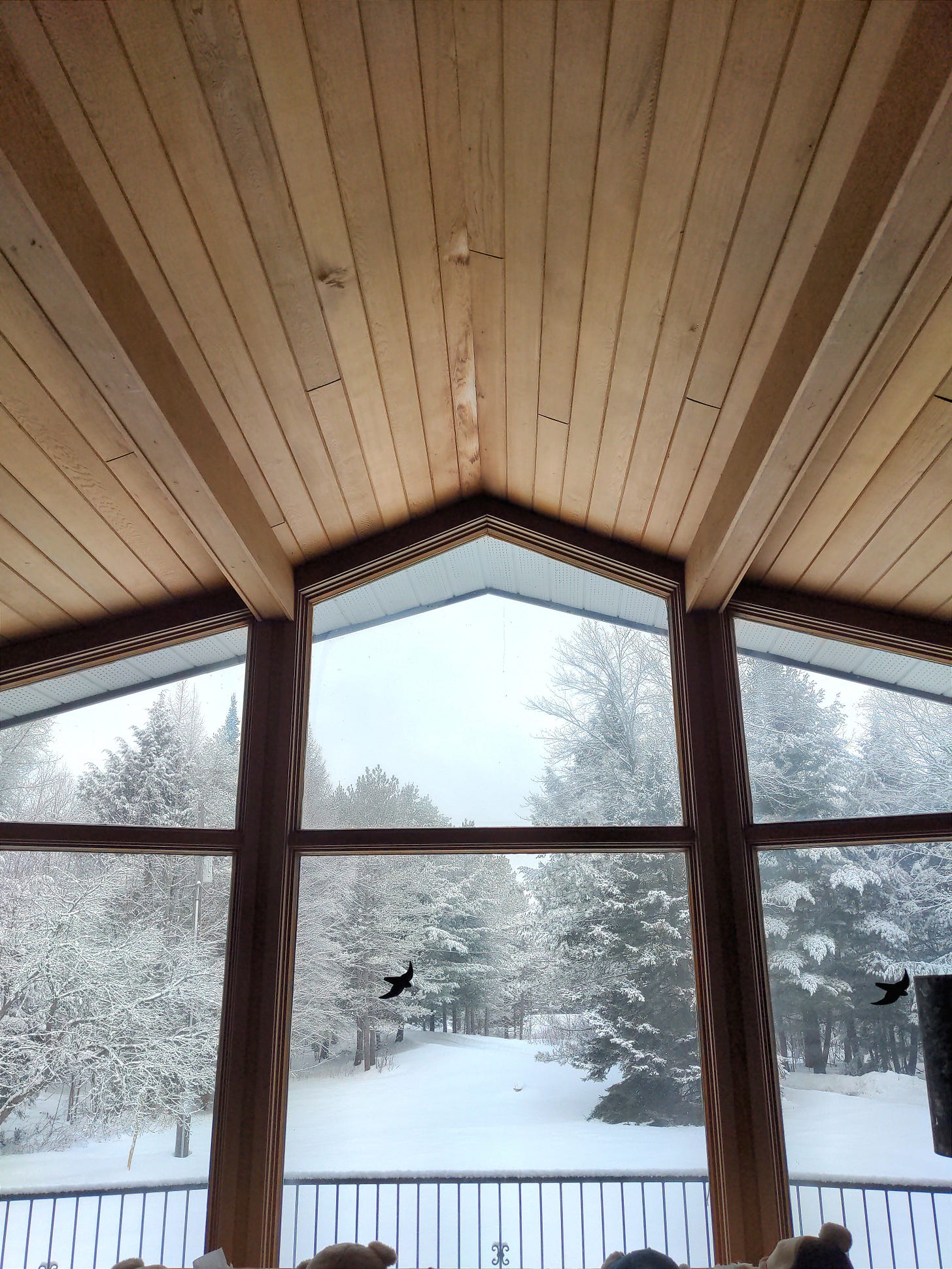
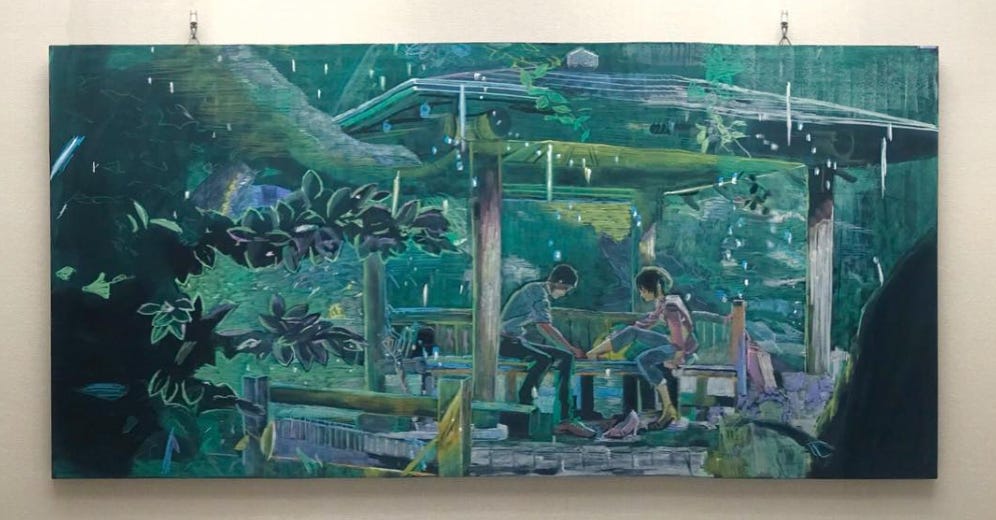
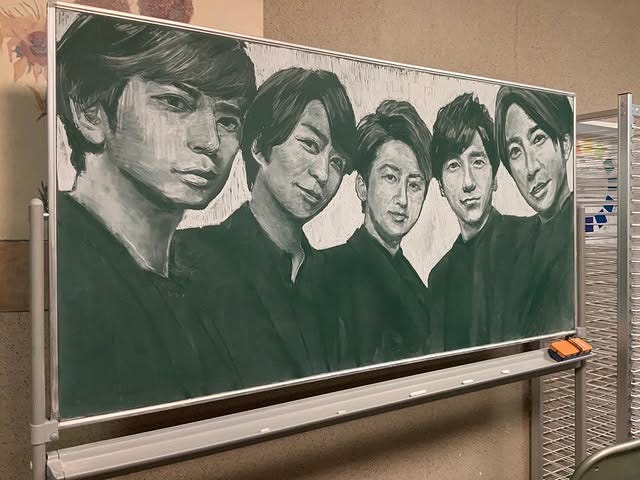
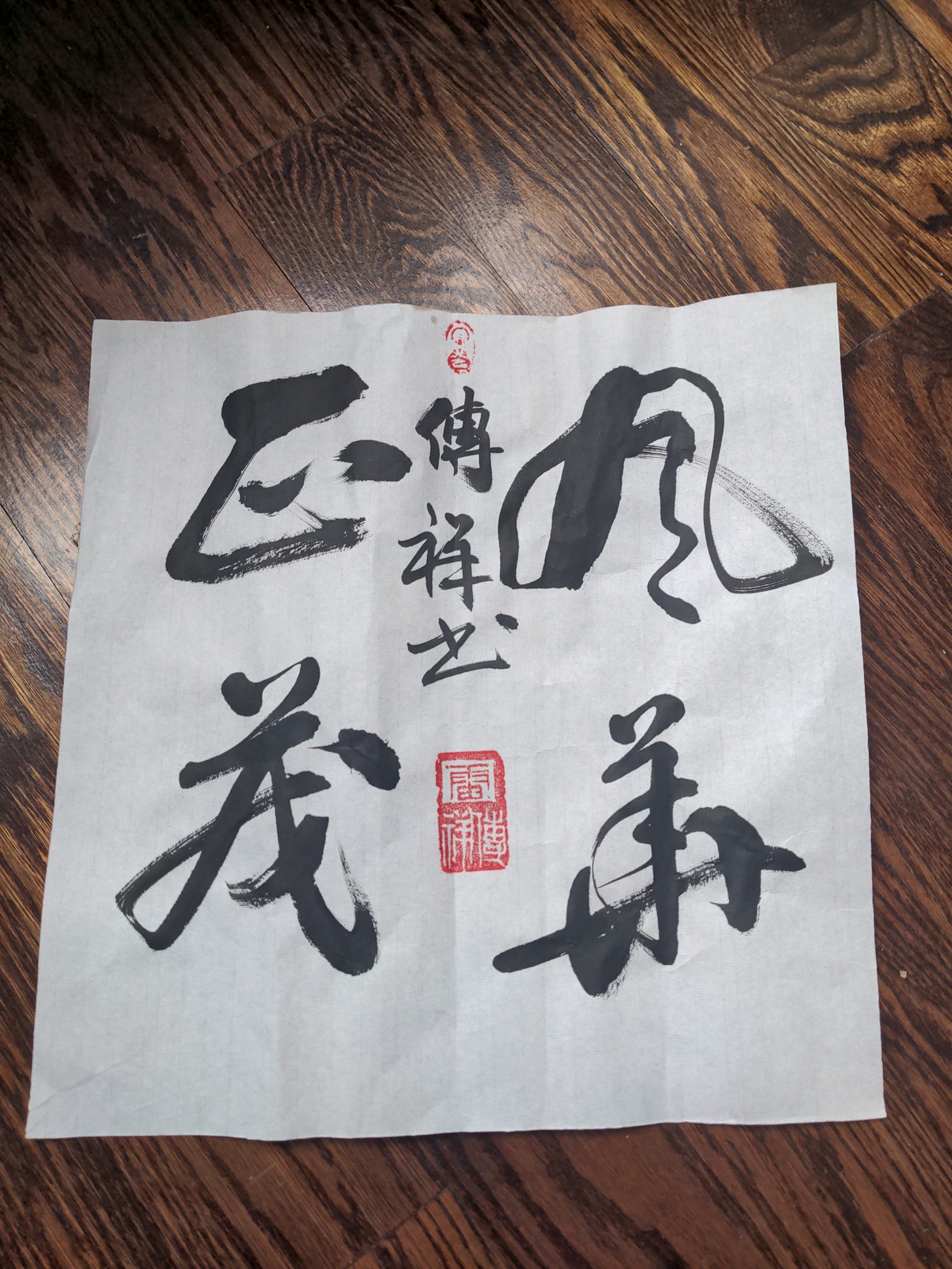
As the Dad, I was told by my parents (Odelia's grandparents) to focus on academic study, anything else was "noise". From traditional Chinese perspective, only a handful of careers are worthwhile to pursue: physicians, lawyers, accountants and engineers. I was "forced" to study electrical engineering and ended up in IT for 20+ years. Although I am semi-retired now managing my own investment, I constantly think back of "what if I didn't study engineering..."
My parents believed that a full-time white collar professional was the only way for a happy life and therefore wished the same on their son. However, after becoming a Christian and living on a hobby farm for 20 years, I could not agree with their thinking. God gives each person different gifts and we don't need an overwhelming number of office professionals; rather we need all sorts of productive and morally decent individuals in the society. I have seen highly intelligent post-doctoral researcher struggles with basic life skills such as fixing a light switch or changing a blown tire. Knowledge does not equal to wisdom.
For Odelia, I advised her to focus on several interests simultaneously, rather than a new one every other day. It is OK to explore when one is young, especially when one has the luxury living under the wings of the parents. But there comes a day when one has to be sober and be really good at certain skills.
Working at a 40 hours/week career or multiple side jobs is not the main issue. The most important thing is if one is fulfilling God's calling and utilizing God-given gifts. There may be times when one is stuck at a mundane but well-paying job, thereby putting food on the table for the family (l did). There may be times when one can pursue his heart and feel alive (I am now). I don't think one scenario is necessarily better than the other; it all depends on what stage of life one is in.
I do think higher education (e.g. undergraduate degree) is beneficial; although one has to be careful with his choice of college and program. At the minimum, a trade school or apprenticeship should be arranged for a youngster. Or if a business owner is willing to train him to become a future entrepreneur.
Bottom line is every capable adult should be able to stand on his own feet, working at a job that is useful and helpful to others: "It is more blessed to give than to receive."